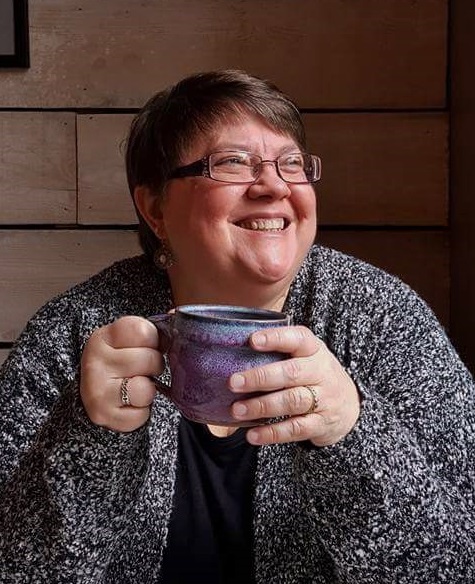Meet Jeanette Windle

 Jeanette Windle, an award-winning novelist and investigative journalist, has lived in six countries and traveled in thirty-five-plus. Those experiences birthed 16 fiction titles, including bestselling Veiled Freedom (ECPA Christian Book Award/Christy Award finalist) and Freedom’s Stand, (ECPA Christian Book Award/Carol Award finalist), and such non-fiction titles as ECPA Christian Book Award/Christian Retailing Best Awards finalist Forgiven: The Amish Schoolhouse Shooting, a Mother’s Love, and a Story of Remarkable Grace and All Saints.
Jeanette Windle, an award-winning novelist and investigative journalist, has lived in six countries and traveled in thirty-five-plus. Those experiences birthed 16 fiction titles, including bestselling Veiled Freedom (ECPA Christian Book Award/Christy Award finalist) and Freedom’s Stand, (ECPA Christian Book Award/Carol Award finalist), and such non-fiction titles as ECPA Christian Book Award/Christian Retailing Best Awards finalist Forgiven: The Amish Schoolhouse Shooting, a Mother’s Love, and a Story of Remarkable Grace and All Saints.
 Tell us about your newest book.
Tell us about your newest book.
All Saints (Bethany House Publishers) is the inspiring true story of Karen Christian war refugees from Myanmar, a dying Tennessee church, and the miracle God wrought in bringing them together. The book accompanies the Sony Affirm movie by the same name, which released nationwide August 25th. The story centers on newly-ordained Rev. Michael Spurlock (played by John Corbett in movie), whose first assignment was to pastor a Smyrna, TN, congregation of less than twenty-five remaining attendance while negotiating the sale of land and closing of church in order to pay off a crushing mortgage debt of almost a million dollars. Enter 75 Karen war refugees, mostly farmers in their own country, seeking a new start in America. What could one insolvent church about to close its own doors possibly do to help? Then God gently reminded Michael he’d not only provided All Saints with land, but just sent them experienced farmers. The ensuing quest to save All Saints and help the Karen holds all the drama, outright miracles, and roller-coaster ups and downs any action plot could ask for. In the end, it was not All Saints that helped the Karen nor the Karen who saved a dying church, but the coming together of the body of Christ from opposite sides of the planet into one community under God that became the salvation of both and the true ultimate miracle of All Saints.
Why this particular story?
As a missionary kid growing up on the mission field in Colombia, I read the biography of Adoniram Judson, the first overseas missionary from North America, whose first Christian converts were in turn the Karen people of Myanmar (then Burma). I had followed the story of the Karen, from their courageous role in fighting for the Allies during WW2 to the genocide unleased on them when Japan’s puppet regime took control after the Allies pulled out, as well as their stubborn war of resistance and refusal to renounce their Christian faith. By the 1990s, an estimated half-million were displaced or living in refugee camps, mostly in Thailand. When I received a call from Bethany House Publishers, asking me to write the story of Rev. Michael Spurlock, All Saints, and a group of Karen Christian refugees now living in the United States, I was delighted and excited to investigate and write this story.
What I ended up discovering was far more than a simple story of refugees receiving a welcome by a Tennessee church. The stories of Ye Win, Father Bu Christ, and other Karen, the miraculous workings of God, even through tragedy and loss, in ways too implausible for any fiction plot, and the coming together of a community of faith that continues to impact lives to this day deeply touched my own heart and life. What I found also inspiring and exciting is going back to North America’s first overseas missionary Adoniram Judson, whose ministry brought the Gospel of Jesus Christ to the Karen. A ministry that has come full-circle with the Karen coming to North America and blessing our nation in turn with their faith and testimony of courage and steadfastness under brutal persecution.
What genre do you focus on and why?
In truth, I have written in a wide gamut of genres, fiction from YA and teen to adult international suspense, non-fiction biography, as well as curriculum and how-to along with almost thirty years as a missions journalist. If there is one common element, it is telling the story of God’s people and God’s working around the planet, whether in non-fiction or fiction format. My latest title, All Saints, is a good example of such a story.
Why do you write? What drives you?
I write because I am a story teller. We serve a wildly creative God who painted the skies and flowers, put music in the bird’s song and rivers, created universes of places and peoples. And just as God gave artists and musicians the ability to create with color and sound, so a story-teller’s ability to create worlds and characters and drama of their own imagining is a small reflection of God’s own creative powers, one of the ways we were made in His image. God created me to be a story teller, and I simply can’t not do so, whether it is in the form of fiction or non-fiction. Even when I am writing fiction, I am still telling the stories of true-life peoples and places and issues, and I love the feedback I get from readers who say they now understand the news and international issues after having read one of my books.
What is the hardest part of being an author? Why?
Writing and marketing are for most authors the most difficult, though for very different reasons. Getting the story itself down on paper (or computer screen) is a hair-tearing, heart-yanking, exhausting outpouring of spiritual, emotional, and creative energy. It is eminently worthwhile, but the hardest work I will ever do. Once the story is birthed, I personally enjoy the editing process, going back and working through each scene, polishing it up, cutting, adding, tweaking until I am sure every sentence says exactly what I want to convey, is both enjoyable and eminently satisfying.
But then comes that awful word “marketing”. I am a typical writer in that I’d rather stay holed up in my cave (figuratively) writing my next book than mess with marketing and publicity.
What’s the best part of your author’s life? Why?
The best aspect of writing is definitely receiving that positive feedback from readers who are loving the story and characters you’ve spent so many countless hours creating. Even more so, who’ve been touched spiritually by the message of the book.
What is the craziest thing you’ve experienced as an author?
The crazy moments of my life haven’t been particularly connected to being an author. But one experience that stands out as a little crazy was a book-signing at the International Christian Retail Show (then CBA) for my second adult international suspense novel, The DMZ, a Tom Clancy-length tome set in the Colombian guerrilla zones where I grew up. As I sat signing, a tall, larger-than-life man with a huge Stetson cowboy hat breezed up the line, loudly announcing with a pronounced southern drawl, “You all got to get this book! It is just so exciting!” Etc. Meanwhile, my editor is alerting me quietly that the hurricane approaching is a major book buyer. The man stops in front of me. Have I mentioned I’m only 5’ 1”? He looks down at me, and without dropping his voice one decibel announces, “Okay, little lady, before you sign me a copy, I’ve got just one question I’ve been wanting to ask.” His gaze sweeps me up and down. “How is it that such a teeny-weeny little lady can write such a great big, fat, scary book?” Unsure whether to feel insulted or complimented, I swallowed, reminded myself of my editor’s heads-up as to the Stetson-wearer’s VIP status, then let my sense of humor get the best of me as I murmured demurely, “Well, you see, I’ve never really considered that the size of my body was in any way related to the size of my brain.” He blinked, took the autographed copy, and as I was informed later, did order a good quantity of the book.
What is your favorite pastime?
Exploring new places on the planet God has permitted me to visit, generally in conjunction with a ministry trip. Most recently, that has included Kenya’s Rift Valley, the Ashkenazi pueblo villages of southwestern Colorado, an elephant reserve in Sri Lanka, and the beauty of rural Ireland. That includes trying new foods and life experiences (still holding out on sky-diving, but have tucked hurricane and earthquake under my belt). And of course, reading good books.
Do you have other books? We’d love to know.
I have both adult fiction, including the award-winning Afghanistan titles Veiled Freedom/Freedom’s Stand (Tyndale House) and non-fiction such as Forgiven: The Amish School Shooting, a Mother’s Love, and a Story of Remarkable Grace (Bethany House Publishers) as well as the YA mystery series Parker Twins Adventures. Easiest overview is just to check out my Author Page on Amazon.
What are you working on now?
I am writing another exciting true story, the sequel to Inside Afghanistan, which was the story of John Weaver, the last Christian aid worker remaining in Afghanistan during the November, 2001, invasion (https://www.amazon.com/dp/B007FZOWLG/ref=dp-kindle-redirect?_encoding=UTF8&btkr=1) Najiba: A Love Story from Afghanistan, release date early 2018, tells the inspiring story of what God has done through John and his family since liberation.
Website: www.jeanettewindle.com
Link to book: https://www.amazon.com/All-Saints-Surprising-Refugees-Brought/dp/0764230271/ref=asap_bc?ie=UTF8
Social media links:
https://www.facebook.com/jeanette.windle
https://twitter.com/jeanettewindle
Meet Andrea Kuhn Boeshaar

 Andrea Kuhn Boeshaar is a Wisconsin author of over 40 books with ONE MILLION COPIES SOLD! The three components in all of her stories are faith, family, and forever relationships. In addition to novels, she blogs and writes devotionals and magazine articles with the hope of encouraging women wherever they are in their spiritual journeys.
Andrea Kuhn Boeshaar is a Wisconsin author of over 40 books with ONE MILLION COPIES SOLD! The three components in all of her stories are faith, family, and forever relationships. In addition to novels, she blogs and writes devotionals and magazine articles with the hope of encouraging women wherever they are in their spiritual journeys.
Her latest historical series is the Shenandoah Valley Saga (Kregel Publications). In September, her novel “My Heart Belongs in the Shenandoah Valley” (Barbour Publishing) is slated for release A Christmas novella is in the works and next year book 3 in her Shenandoah Valley Saga will be released.
Tell us about your newest book.
It’s one of Barbour Publishing’s new line of books in the “My Heart Belongs” series. My novel is set in the picturesque Shenandoah Valley in 1816 when many Americans were struggling with the aftermath of the War of 1812.
Journey into Virginia’s Shenandoah Valley of 1816 where a woman’s dreams and future happiness are on the line. Captain McAlister “Mac” Albright has purchased land in the Shenandoah Valley. However, the land belongs to Lilyanna Laughlin—or so she erroneously thinks. Mac sets her straight and despite a poor start, the two become friends. . .if only he were financially stable to offer her more.
When Lily’s life is threatened and his whole future goes up in flames, Mac truly becomes a man without means, and Lily is forced to make the impossible choice between a loveless marriage with a man twice her age or the man who has shown her what true love could be. How can she choose between love and economic security? Her family is depending on her.
What genre do you focus on and why?
I write Christian romance. Why? I find relationships fascinating. Life, itself, is about relationships. Even the essence of faith is about how God first loved us so we could love Him, and in the spiritual battle for our souls, Jesus Christ is the ultimately hero, drawing us to Himself, desiring a relationship with Him now and into eternity. A great love story doesn’t get any better than that.
Why do you write? What drives you?
I think I have a romantic heart and always have. Now that I’m adult, my faith drives me because I try to make my novels a slice of faith in action. If a nonbeliever picked up one of my many books, he or she would begin to understand the meaning of being a Christian and that bad and good things happen to those who believe as well as those who don’t.
Who is your main character, and how did you choose that name?
Mac Albright is my main character. I’m not sure how I arrived at the name. That’s just who he was from the moment I began writing the synopsis to the end of the novel. There are times, however, when a character’s name changes numerous times while I’m writing a story. But Mac was always Mac.
What does a day in your writing world look like?
I wake up daily at 4 AM. I either write or do homework for a couple of hours (I’m finishing my Bachelor’s degree). Sometimes I do promotion during that time. Then I go to my “real job” where I work as a Customer Service Rep for a national hotel supplier. I’m done working at 5 and then I do things I need to get done that day—laundry, etc. I’m usually sleeping by 8PM. Exciting life, right?
What is the hardest part of being an author? Why?
Cultivating the time to be creative and write because of working a full-time job too.
What’s the best part of your author’s life? Why?
There’s a true sense of accomplishment when I, at last, see one of my stories in print. And to think that God might use it in someone else’s life leaves me awestricken. It’s a humble but exciting feeling.
What are you most proud of?
I’m most of my books Broken Things and Hidden Things. So many people have written to me and said God used those books to change their hearts and minds. It’s sometimes surreal to think of myself as a tool in the Master’s hands, but it’s an indescribable joy as well.
What is your favorite pastime?
Well, when I get free time I love to spend it with my grandchildren. In fact, as I finish this interview, my 7-year-old grandson is waiting for me to take him to McDonald’s for lunch.
Do you have other books? We’d love to know.
I’ve written more than 30 books and they are all listed on my website. www.andreaboeshaar.com
What are you working on now?
I’m writing a Christmas novella that I plan to publish on my own. My husband and I are developing our own publishing company which we plan to call Steeple View Press. We live on Steeple View Road which is how we came by the name. I also run Steeple View Coaching for Writers, a service NOT affiliated with my new publishing company. Coaching isn’t editing, so interested writers should peruse my web page called “Helps for Writers.”
Website: www.andreaboeshaar.com
Link to book: https://www.amazon.com/My-Heart-Belongs-Shenandoah-Valley/dp/1683222229/ref=tmm_pap_swatch_0?_encoding=UTF8&qid=&sr=
Social media links: Facebook/Andrea.Boeshaar
Twitter: @AndreaBoeshaar
For more information, and to sign up for her quarterly newsletter, log onto her website: www.andreaboeshaar.com
Meet Carrie Turansky

 Carrie Turansky has loved writing since she penned her first novel at age twelve. She is now the award-winning author of eighteen inspirational romance novels and novellas. Carrie and her husband, Scott, have been married for more than thirty-five years and make their home in New Jersey. Carrie leads women’s ministry at her church, and when she is not writing she enjoys spending time in her flower gardens and cooking healthy meals for friends and family.
Carrie Turansky has loved writing since she penned her first novel at age twelve. She is now the award-winning author of eighteen inspirational romance novels and novellas. Carrie and her husband, Scott, have been married for more than thirty-five years and make their home in New Jersey. Carrie leads women’s ministry at her church, and when she is not writing she enjoys spending time in her flower gardens and cooking healthy meals for friends and family.
Tell us about your newest book.
 My newest novel is Shine Like the Dawn. In a quiet corner of northern Edwardian England, Margaret Lounsbury diligently works in her grandmother’s millinery shop, making hats and caring for her young sister, Violet. Several years earlier, a terrible event shattered their idyllic family life and their future prospects. When Maggie discovers her father’s journal she begins to wonder if what happened to her family might not have been an accident.
My newest novel is Shine Like the Dawn. In a quiet corner of northern Edwardian England, Margaret Lounsbury diligently works in her grandmother’s millinery shop, making hats and caring for her young sister, Violet. Several years earlier, a terrible event shattered their idyllic family life and their future prospects. When Maggie discovers her father’s journal she begins to wonder if what happened to her family might not have been an accident.
Maggie’s childhood friend, Nathaniel Harcourt, returns from serving in the Royal Navy and inherits his father’s estate, Morningside Manor. He also assumes partial control of his father’s engineering company and the duty of repaying an old debt to Maggie’s family. But years of separation between Nate and Maggie have taken a toll, and Maggie is uncertain if she can trust her old friend, especially when his family may be tied to the tragedy that changed the course of her life. Can Maggie let go of the resentment that keeps her from forgiving Nate–and being reconciled with God? Will the search for the truth about the tragedy draw the two friends closer or leave them both with broken hearts?
What genre do you focus on and why?
I enjoy writing both contemporary and historical romance, but historical is my favorite. All my novels have inspirational themes woven into the story. I’m a romantic at heart, and I believe in happy endings. I love to show how my characters grow in their faith as they go through trials and conflicts.
Why do you write? What drives you?
I love the creative process of writing and using my imagination this way. I also want to encourage readers to see how faith is practical and God is at work in our lives and our world. Storytelling has a way of reaching into people’s hearts and minds. God can use a well-written novel to touch people and draw them closer to Him. That’s one of my goals when I write.
Who is your main character, and how did you choose that name?
The heroine of Shine Like the Dawn is Margaret (Maggie) Lounsbury. She is young woman who has suffered a great loss, but she is determined to care for her sister and grandmother. I liked writing a character who needed to come to grips with some hard questions and work through those. I chose her first name by looking through the list of popular names for baby girls born the same year as Maggie. Her last name is the English family name of my dear friend and fellow author Cathy Gohlke. Her stories about her English grandmother always touched my heart, and I wanted to use her name for my heroine.
What does a day in your writing world look like?
I’m blessed to be working at home, and we are at the empty nest stage. So my day is my own. I do help my husband with ministry needs, and we both are in touch with our five adult kids most days. After I get my day started, I head for my desk in the corner of our dining room. I check email, then jump into my writing. I use a weekly word count to help me stay on track to reach my deadlines. In the evening I work on promotion and relax with my husband . . . unless I’m close to my deadline and hustling to finish a story.
What is the hardest part of being an author? Why?
One of the challenges is spending so much time alone, focusing on my book projects. Saying no to friends’ invitations is hard too. I try to balance it out, but sometimes people don’t understand I am working at home even if I’m not away at an office. Fortunately I am blessed with some wonderful understanding friends, and I always squeeze in time with them.
What’s the best part of your author’s life? Why?
The best parts are the connections I make with other writing friends and seeing my books in print. It’s also wonderful to hear from readers who have been touched by one of my novels. That’s always a great encouragement.
What is the craziest thing you’ve experienced as an author?
One time I boarded an airplane in California to fly home to New Jersey, and the women seated next to me was reading one of my books. I was so surprised I said, “That’s my book!” She thought I meant she’d taken my book. I laughed and explained I was the author of the book she was reading. We had a fun visit during the flight, and I signed her book for her.
What are you most proud of?
I’m the most proud of my family and the way God is at work in our lives. We have five adult children and five grandchildren. It’s great to see them enjoying their own families and careers. My husband is a wonderful guy. I am so grateful for him and the way he has invested in our family all these years.
What is your favorite pastime?
I enjoy reading, gardening, traveling, cooking, and spending time with friends. It’s too hard to choose just one!
Do you have other books? We’d love to know.
Yes, I’ve had several novels and novellas published: Six novella collections, five Love Inspired novels, four English historical novels, and a two Indie novellas. Reading friends will probably be most familiar with my Edwardian Brides Series: The Governess of Highland Hall, The Daughter of Highland Hall, and A Refuge at Highland Hall.
What are you working on now?
I just turned Across the Blue, which is set in Edwardian England and is about an aviation pioneer and the girl who falls in love with him. It’s filled with romance, adventure, and faith. Isabella Grayson, the eldest daughter of a wealthy, English newspaper magnate, longs to become a journalist, but her parents don’t approve.
When James Drake, an aspiring aviator, crashes his flying machine at the Grayson’s new estate, Bella is intrigued. James wants to win Bella’s heart, but his background and lack of social standing make it unlikely her parents would approve. If he fails to achieve his dream, how will he win the love and respect he is seeking? Will Bella’s faith and support help him find the strength and courage he needs when unexpected events turn their world upside down?
Website: http://carrieturansky.com/
Link to book: http://carrieturansky.com/index.php/books/
Social media links:
Facebook: https://www.facebook.com/authorcarrieturansky/?
Pinterset: https://www.pinterest.com/carrieturansky/boards/
Twitter: https://twitter.com/carrieturansky?
GoodReads: https://www.goodreads.com/author/show/247470.Carrie_Turansky
Meet Sandra Orchard

 Sandra Orchard—winner of the RT Reviewers’ Choice Award and the National Readers’ Choice Award, among others—leaps off the garden trails of her herbal-medicine-researcher-turned-amateur-sleuth (Port Aster Secrets) series, to the museum corridors of her plucky FBI art crime agent Serena Jones. When not plotting crimes, Sandra plays make-believe with her young grandchildren or hikes with her hubby and husky near their home in Ontario, Canada.
Sandra Orchard—winner of the RT Reviewers’ Choice Award and the National Readers’ Choice Award, among others—leaps off the garden trails of her herbal-medicine-researcher-turned-amateur-sleuth (Port Aster Secrets) series, to the museum corridors of her plucky FBI art crime agent Serena Jones. When not plotting crimes, Sandra plays make-believe with her young grandchildren or hikes with her hubby and husky near their home in Ontario, Canada.
Tell us about your newest book.
 Over Maya Dead Body is third and final book in my Serena Jones Mysteries series from Revell Publishing, featuring a plucky FBI agent who specializes in art crime. In this novel, she’s supposed to be on vacation in the beautiful Martha’s Vineyard, but instead stumbles onto an antiquities case, connected to the death of a close friend of the family. Each book in the series is a standalone mystery, with a fun, eclectic group of secondary characters who continue to reappear. But in the first book, A Fool and His Monet, I invited readers to vote for the man in Serena’s life with whom they’d like to see her eventually start a relationship. And Over Maya Dead Body fulfills my readers’ wishes…or at least the majority of them. For the rest, I’ve started a private FB group where they can commiserate over her choice without fear of spoilers.
Over Maya Dead Body is third and final book in my Serena Jones Mysteries series from Revell Publishing, featuring a plucky FBI agent who specializes in art crime. In this novel, she’s supposed to be on vacation in the beautiful Martha’s Vineyard, but instead stumbles onto an antiquities case, connected to the death of a close friend of the family. Each book in the series is a standalone mystery, with a fun, eclectic group of secondary characters who continue to reappear. But in the first book, A Fool and His Monet, I invited readers to vote for the man in Serena’s life with whom they’d like to see her eventually start a relationship. And Over Maya Dead Body fulfills my readers’ wishes…or at least the majority of them. For the rest, I’ve started a private FB group where they can commiserate over her choice without fear of spoilers.
What genre do you focus on and why?
Although I do write romantic suspense as well, these days I mostly write mysteries. I love puzzling out intricate plots that will keep readers guessing until the end.
Why do you write? What drives you?
Christian fiction had a tremendous impact on me at a low point in my life and awakened a long-buried dream of writing. I strive to write stories that will both entertain and inspire.
Who is your main character, and how did you choose that name?
FBI agent and art aficionado, Serena Jones, is my main character. Originally I named her Serena Honey, because I’d dreamt up fun titles that played off the name, but my editor didn’t like the name and the publishing team came up with even better titles—A Fool and His Monet, Another Day Another Dali. So I opted for Jones, because I needed a British name and wanted one that rolled easily off the tongue.
What does a day in your writing world look like?
If I have no other obligations or appointments, I might start writing (or avoiding writing by checking emails and answering blog interviews) soon after my morning exercise/devotions/breakfast routine, then break only for meals and an afternoon or early evening walk and then continue to write or edit until bedtime. Of course, I will break to spend time with my hubby or friends and I am very good at planning play dates with my young grandchildren, which of course isn’t procrastinating at all. In other words, most days aren’t nearly as productive writing-wise as my description might sound.
What is the hardest part of being an author? Why?
Writing the last 10,000 words, because I tend to write the plot and then need to go back and fill in a lot of the characterizations, which tend to be tougher for me to flesh out. It’s that messy cutting open a vein and bleeding onto the page that gets me.
What’s the best part of your author’s life? Why?
There are so many great parts—the thrill of dreaming up and writing a story that people enjoy with characters they talk about and ask to see more stories about; the fun of research, like visiting FBI headquarters or Martha’s Vineyard or attending the Writer’s Police Academy, and the opportunity to connect with so many people (fellow writers and readers) that I otherwise wouldn’t likely ever meet.
What is the craziest thing you’ve experienced as an author?
There have been a few times I’ve been either brainstorming a story with a fellow writer or asking research questions of someone and been overheard by someone who has no idea I’m a writer and that I’m not really plotting a murder. One time my writer friend and were talking undetectable poisons in the produce aisle as we did our groceries and a police cruiser sped into the parking lot as we exited the door. Thankfully, he wasn’t gunning for us, but it gave me the idea for the opening of one of my novels. Another time, I shared a cab with a coroner and asked him if he’d be able to detect if I killed someone using insulin. The cabbie’s gaze kept zipping to the rearview mirror and we reached the airport in record time.
What are you most proud of?
Raising three wonderful children who love and serve the Lord.
What is your favorite pastime?
These days it is playing with my grandchildren.
Do you have other books?
Yes, I have a dozen other books. I have seven Christian romantic suspense with Harlequin’s Love Inspired Suspense imprint. I also have two mystery series with Revell Publishing—Port Aster Secrets, which includes Deadly Devotion, Blind Trust and Desperate Measures; and my Serena Jones Mysteries. Readers can learn more about all my books here: http://sandraorchard.com/my-books/
What are you working on now?
I am working on several cozy mysteries. Fans of my Serena Jones Mysteries are also urging me to write a spin-off series, so we’ll see.
Website: http://www.SandraOrchard.com
Link to book:
Social media links: Facebook: www.Facebook.com/SandraOrchard
Pinterest: https://www.pinterest.com/AuthorSOrchard/
Readers can also follow me on Bookbub: https://www.bookbub.com/authors/sandra-orchard
Meet Kimberly Rose Johnson!

 Kimberly Rose Johnson married her college sweetheart and lives in the Pacific Northwest. From a young child, Kimberly has been an avid reader. That love of reading fostered a creative mind and led to her passion for writing. She especially loves romance and writes contemporary romance that warms the heart and feeds the soul.
Kimberly Rose Johnson married her college sweetheart and lives in the Pacific Northwest. From a young child, Kimberly has been an avid reader. That love of reading fostered a creative mind and led to her passion for writing. She especially loves romance and writes contemporary romance that warms the heart and feeds the soul.
Kimberly holds a degree in Behavioral Science from Northwest University in Kirkland, Washington. She is a member of American Christian Fiction Writers.
Tell us about your newest book.
 A Christmas Surprise is the first book in my Love in the Cascades series. This book is not exactly new. It was originally published by Heartsong Presents back in 2013 as A Christmas Promise. I’ve received my rights back and am now re-publishing them with new titles and covers. Here is the back cover blurb:
A Christmas Surprise is the first book in my Love in the Cascades series. This book is not exactly new. It was originally published by Heartsong Presents back in 2013 as A Christmas Promise. I’ve received my rights back and am now re-publishing them with new titles and covers. Here is the back cover blurb:
Veterinarian Pete Harding doesn’t date single moms. After showing up to a blind date to find he left before she arrived, Keira is reminded why she doesn’t date. She had true love once but a tragic accident ripped him from her and their son, who’s now four and only wants a puppy for Christmas this year.
Although off limits since she’s a single mom, Pete determines to help Keira find the perfect puppy for her son. Keira wonders about Pete. He says he doesn’t date women with children, yet she can’t help but notice he behaves like a man who has more on mind than finding a puppy. Will love break down Pete’s walls and bring more than a puppy for Christmas?
What genre do you focus on and why?
I write contemporary Christian romance. I like to dub my books as sweet romance meets women’s fiction. When I first started to pursue publication I wrote romantic suspense, but my suspense wasn’t strong enough for publication. My agent at that time suggested I write contemporary romance without the suspense. I followed her advice and the first book I gave her sold. A Christmas Surprise is that book.
Why do you write?
I write because I really enjoy it. I continue to write because I would miss it if I stopped.
Who is your main character, and how did you choose that name?
Keira Noble is my main character. I don’t recall why I chose her first name, but her last name reminded me of Christmas since nobles are a type Christmas tree. I enjoyed the play on words.
What does a day in your writing world look like?
My day starts early with exercise, then devotions. I find if I don’t start my day off right both physically and spiritually then things don’t go as smoothly in my writing. I generally spend about fifteen minutes each morning on marketing, then jump into writing. This summer has been odd since I’ve spent my days editing rather than writing. Unfortunately, when I sent my books to the book scanning company to have then converted into digital files they completely messed them up. It’s taken me about two months to find and fix all the errors caused in the scanning process—not my favorite thing to do, but it’s been so much fun re-visiting this series.
During the school year I work part time at a high school. My writing day begins when I get home from that job. I generally write between one and two thousand words a day five days a week. I take the weekends off.
What is the hardest part of being an author? Why?
I’m seriously pondering this question. When I read it, three things immediately popped into my head—marketing, not allowing reviews to stifle my creativity, and the need to be seated while writing. Honestly all of these things are difficult for me. I solve the review issue by forcing myself to not read reviews because good or bad they can mess with my head. Marketing is tough because it doesn’t come naturally to me. Sitting is difficult because it hurts my back, and I like to be moving around. So forcing myself to sit long enough to accomplish my goals is often a big challenge.
What’s the best part of your author’s life? Why?
I love the connection with readers. I have a Facebook group for my readers and it’s a treat to visit with them. I also love the sense of accomplishment I get every time I write a new story. It’s a great feeling!
What is the craziest thing you’ve experienced as an author?
I hesitate to tell this story because I don’t want to give anyone ideas, but it truly is the craziest thing. Book four in this series is about a woman who wants to be a matchmaker. The problem is she’s not all that good at it, so she secretly signs up her client on a matchmaking site. This apparently inspired someone because they did it to me!
Someone actually opened an account in my name, and I was getting emails and everything. I’m not single. My husband and I celebrate our 27th anniversary this year. I had to call the site and get them to remove the account.
What are you most proud of?
I’m most proud of my children. In regard to writing, I’m most proud of achieving my goal of being published. For a time there I wasn’t sure it would ever happen.
What is your favorite pastime?
I love to read and walk. LOL Not at the same time though.
Do you have other books? We’d love to know.
Yes! I have several and one of them was a 2017 Faith Hope and Love Reader’s Choice award finalist. You can check them out on Amazon. Here’s the link http://amzn.to/2jpZj1C
What are you working on now?
I am writing the fourth book in my Melodies of Love series. My goal is to release that book in January or February.
Social media links:
Website: http://kimberlyrjohnson.com/
Facebook: https://www.facebook.com/KimberlyRoseJohnson
Twitter: https://twitter.com/kimberlyrosejoh
Pinterest: https://www.pinterest.com/krose1990/
Meet April McGowan!

 April McGowan loves to write stories of hope, courage, and inspiration. She, her husband, and two teens live in the beautiful Pacific Northwest. April is an award-winning author and member of Oregon Christian Writers and American Christian Fiction Writers. When she’s not writing, reading down her book list, homeschooling her son, or playing board games, you might find her at her drum kit, imagining she’s on a world tour. Hey, it could happen.
April McGowan loves to write stories of hope, courage, and inspiration. She, her husband, and two teens live in the beautiful Pacific Northwest. April is an award-winning author and member of Oregon Christian Writers and American Christian Fiction Writers. When she’s not writing, reading down her book list, homeschooling her son, or playing board games, you might find her at her drum kit, imagining she’s on a world tour. Hey, it could happen.
Tell us about your newest book.

My latest release is Hold the Light. To an artist, the light is everything. So what is Amber supposed to do when facing blindness? Amber spent her life adapting to everything. Being abandoned by her mother as a toddler, and her adoptive father’s death in her teens. But how will she ever accept this impending darkness? Even after her blindness counselor, Ethan, befriends herand opens her eyes to new opportunities and the possibility of a deeper relationship, one haunting question remains: How could the God she loved all her life turn everything upside down again?
What genre do you focus on and why?
I write contemporary fiction with characters who learn they are made for much more than they realize in the face of trials we all meet. My heart always cheers the underdog and the overcomer.
Why do you write? What drives you?
I write because I’ve got a longing in my heart to share stories of trial and joy and finding purpose in the Lord. I’m driven by my own obstacles of physical illness to rely on the Lord for every aspect of my day. He’s so good to provide what I need in the minute. I want to share those stories of His great provision with others in a way that connects to them and their circumstances.
Who is your main character, and how did you choose that name?
The main character in Hold the Light is Amber. Amber is the color of sunrise and the dawn of a new day, it’s the resin found in fossils and can be unearthed and shaped into a thing of beauty. That’s what God does for us if we’ll let Him. He can give us new hope and unearth our dreams, shaping them into things of worth and beauty.
What does a day in your writing world look like?
My writing life is sporadic because of illness. I try to write a few hours a day, but oftentimes my body disagrees with my ideal. I’ve learned to take the time I’m given and be grateful for those moments.
What is the hardest part of being an author? Why?
Marketing my books. Not that I don’t believe in them, I do. My stories are near and dear to my heart. But spending hours chatting myself up feels weird! I find it much easier to write than to market! However, if you don’t get out there and reach and share, you might miss making a connection. SO chat I do!
What’s the best part of your author’s life? Why?
Because I see writing as a ministry of sorts, I think of my writing time as time spent directly with the Lord. It’s out time. The best of those moments is when an idea comes and I learn something new about my character and in doing so, about my relationship with God. That is amazing.
What is the craziest thing you’ve experienced as an author?
I think my youth might have been crazy…but I suspect I’m a bit dull now. Except I like overly loud music…but I don’t think that has anything to do with being a writer. Or maybe that just drowns out the story voices? Maybe not crazy, so much, but awesome? I had a woman come up to me at a book signing and tell me my novel, Jasmine, was just like her life. THAT was wild.
What are you most proud of?
I’m proud of my kids. They are two of the most compassionate and loving people I know. I feel honored to know them. They amaze me.
What is your favorite pastime?
Writing, first and foremost. Also, I love playing Rock Band on my electronic drums with my family. Nothing gets my attention faster than an excellent drum riff. I love reading. And the beach. Binge watching Netflix on hard physical days. Sharing a good cup of coffee with friends. Playing board games. Oh, and drawing. I find joy in the small things.
Do you have other books? We’d love to know.
I do! Jasmine was my first novel and was nominated for a Carol Award for debut novel. Macy is my second “child.” They are both very excited for Hold the Light to release!
What are you working on now?
I’m currently working on two novels. The first is Shine the Light, the second book in the Light Series. It tells the story of Shannon, Amber’s best friend, and her learning to heal from past betrayals. The other is called Sarah’s Song. It’s about Elenore Long and her journey to discover all the beginning threads of her life—and where they unraveled.
Website: http://aprilmcgowan.com
Link to book: http://bit.ly/HoldtheLight
Social media links:
Follow me on Twitter at http://twitter.com/#!/AprilKMcGowan
Join me on Facebook at http://tinyurl.com/963wuej
Pin with me on Pinterest at https://www.pinterest.com/aprilmcgowan/
Meet me on Google+: https://plus.google.com/+AprilMcGowan

